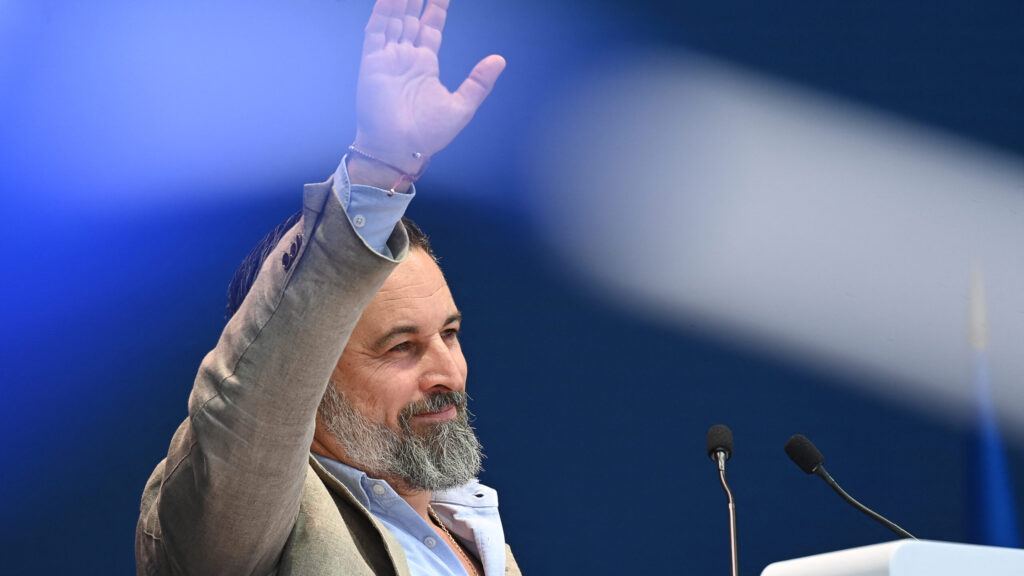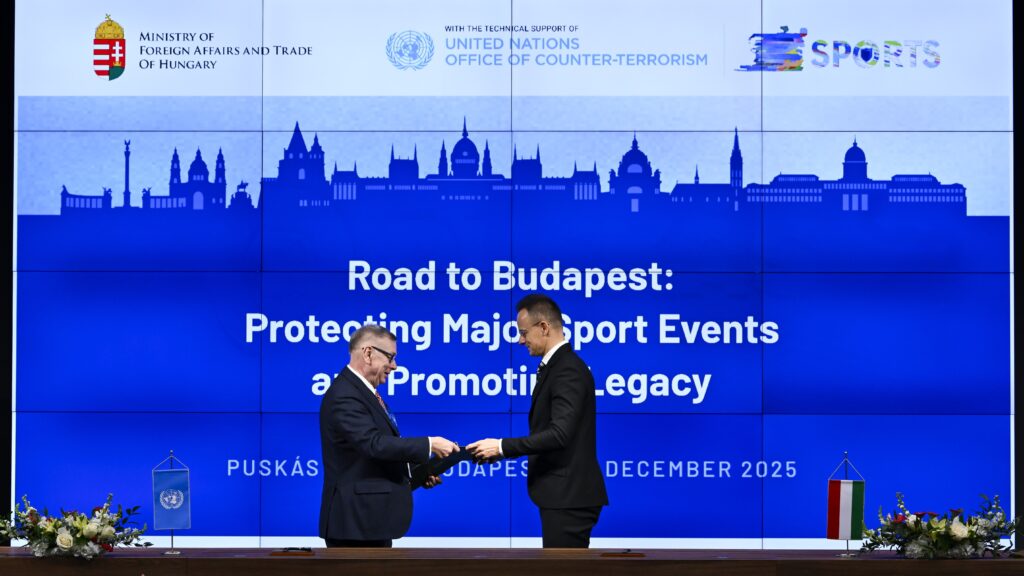The seventh Tranzit Festival took place this weekend in Tihany, on the northern shore of Lake Balaton, attracting significant interest. This year’s event focused on the Hungarian economy, but speakers—including Hungarian Minister of Foreign Affairs and Trade Péter Szijjártó, the political director of the Prime Minister Balázs Orbán, and EU Affairs Minister János Bóka—also discussed migration, sovereignty, and foreign policy.
On the first day of the festival, Antal Rogán, Head of the Prime Minister’s Cabinet Office, discussed the Hungarian family support system and the economy’s crisis resilience. He stated that the first and strongest foundation of the economy is a work-based society, which has endured in Hungary despite various crises, with no increase in the unemployment rate. Rogán emphasized the importance of sovereignty in fostering economic growth, particularly in the energy sector. He noted that the European Commission seeks to undermine one of the Hungarian government’s most significant projects—the utility cost reduction programme—which aims to ensure that Hungarians pay the lowest rates for electricity and gas in Europe. The minister also expressed confidence in the growth of the Hungarian economy this year, highlighting that even the European Commission has acknowledged Hungary’s growth prospects as among the best in the world, despite the ongoing war in Ukraine.
Balázs Orbán shared his ideas on Hungary’s grand strategy at the festival. He explained that the essence of this strategy is to defend the country against attacks on both the nation and Christian culture while ensuring peace and development for the Hungarian people. Orbán noted that in today’s Europe, the widespread attacks on Christian culture and traditions
pose a challenge to the achievement of Hungary’s national goals,
and therefore, all such attacks must be actively fought off.
The political director emphasised that in our times only countries capable of defending their sovereignty in economic and foreign policy, as well as financial and energy supply matters can become stronger. He also highlighted that connectivity is a crucial element of the strategy, stating that Hungary must build relationships across various sectors and in multiple directions to achieve its national goals.
Tamás Lánczi, President of Sovereignty Protection Office, highlighted the external threats facing Hungary that aim to undermine the country’s sovereignty. He noted that global changes are occurring that weaken and challenge the sovereignty of nation-states, and many countries, including Hungary, are experiencing the impact.
Péter Szijjártó expressed a similar view, noting that Hungarian foreign policy, which prioritizes sovereignty, is under constant attack from the liberal mainstream. Szijjártó outlined the perceived threats and defended Hungary’s stance against what he described as concerted efforts to undermine the country’s political and economic security. He emphasized the importance of preserving Hungary’s sovereignty, stating that this is not merely a political ideology but ‘a matter of life and death for the nation.’ He argued that Hungary’s steadfast commitment to sovereignty has positioned it as ‘the antithesis of the liberal mainstream.’
According to the foreign minister, the international community, particularly the liberal mainstream, attacks Hungary’s foreign policies because the country refuses to align with the dominant ideological trends in Europe and the West. He suggested that the liberal mainstream targets Hungary due to its pro-peace and conservative stances, especially regarding conflicts like the war in Ukraine. Szijjártó maintained a resolute position on Hungary’s foreign policies, insisting that
Hungary will not yield to international pressure.
He emphasized that Hungary’s primary objective is to protect its national interests rather than serve external agendas, stating, ‘Our task is to assert Hungarian national interests in the world, not to assert external interests in Hungary.’
In his presentation, EU Affairs Minister János Bóka highlighted the growing disconnect between the European elite and the public regarding various political issues. He argued that the elite use ‘a political counter-campaign to exclude from the community those who, contrary to their views, represent the majority opinion.’ Bóka noted that this behaviour is not accidental, as European integration is not ‘a project driven by democratic ideas, but by elites.’ He described the European Union as ‘an empire-like construction, coated in a veneer of democracy,’ but argued that the EU’s transformation into a federal state remains an unrealistic dream. He explained that unlike the United States, which has existed as a unified federal state for hundreds of years, achieving such unity in Europe is nearly impossible due to the continent’s many nations and diverse cultures.
Regarding the EU’s management of the migration crisis János Bóka expressed his view that the migration pact is not the most effective solution to the challenges. ‘The hysteria surrounding migration has reached a point where, on many issues—such as the green transition and war—it is no longer possible to deviate from the opinion of the European elite without facing consequences,’ he stated.
On the issue of retaliation masked as defence of the rule of law, the minister stated that the largest net contributor member states are the ones in favour of it, while the other, less affluent countries do not believe it is justified. He explained that this reflects an effort by those financing cohesion policy—meant to offset the unintended negative side effects of the single internal market—to reduce their financial burdens or to impose principles from which they could benefit. ‘No one is openly admitting this, so cohesion funding is being withdrawn under the guise of the rule of law,’ he added.
Related articles:







